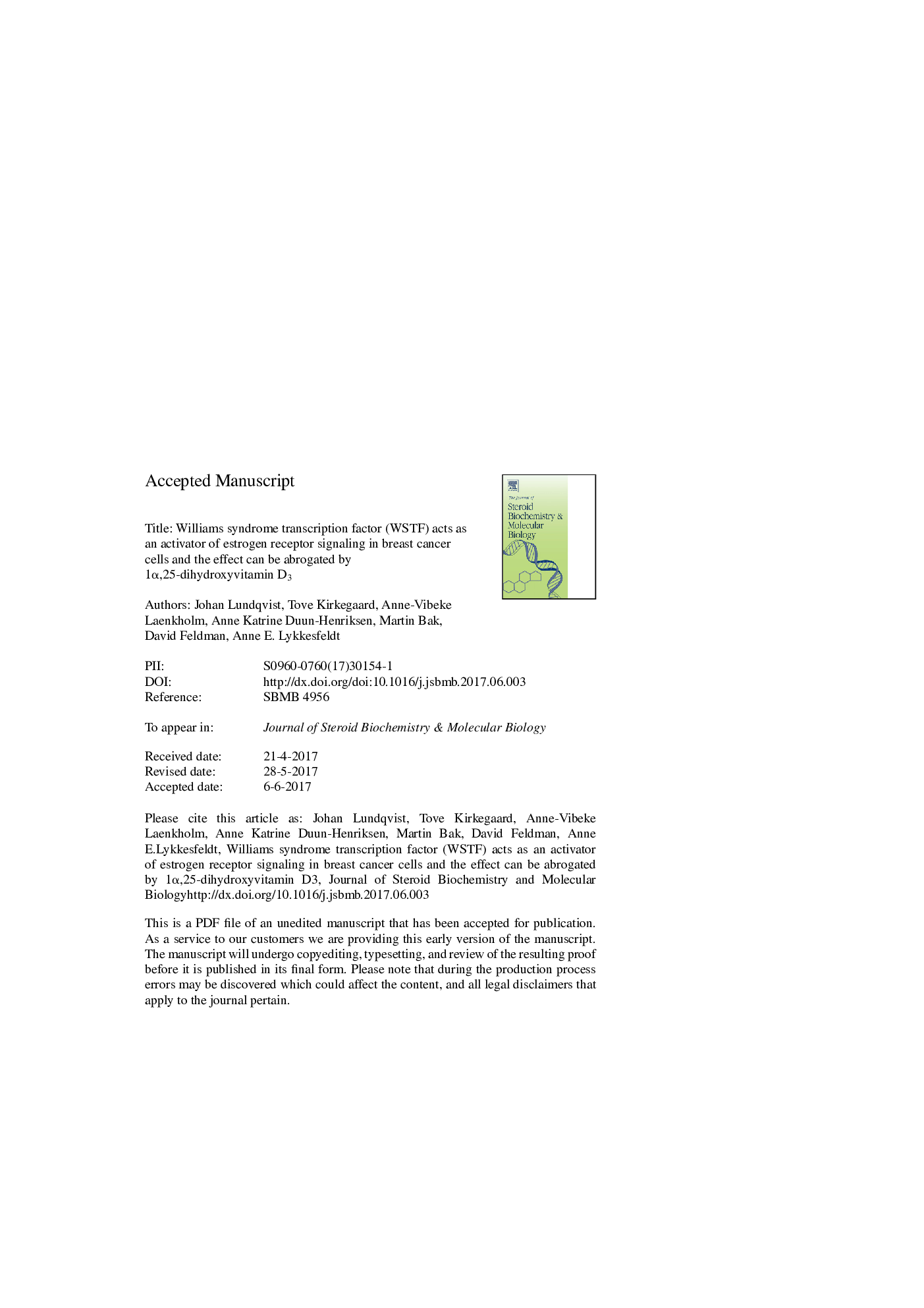| Article ID | Journal | Published Year | Pages | File Type |
|---|---|---|---|---|
| 8337900 | The Journal of Steroid Biochemistry and Molecular Biology | 2018 | 25 Pages |
Abstract
This study reports a novel transcription factor critical to 1α,25-dihydroxyvitamin D3-mediated regulation of estrogenic signaling in MCF-7 breast cancer cells. We have investigated the molecular mechanisms for the 1α,25-dihydroxyvitamin D3-mediated down-regulation of CYP19A1 and ERα gene expression in human MCF-7 breast cancer cells and found that Williams syndrome transcription factor (WSTF) plays a key role by binding to the promoters of CYP19A1 and ERα. Although sometimes reported as an inhibitor of gene expression, we found that WSTF acts as an activator of the promoter activity of both CYP19A1 and ERα. Silencing of WSTF by siRNA transfection resulted in decreased aromatase-dependent cell growth as well as decreased ER signaling in the cells. When cells were treated with 1α,25-dihydroxyvitamin D3, WSTF was dissociated from the promoters and the promoter activities of CYP19A1 and ERα were decreased. We have measured the expression of WSTF in ER-positive tumor-samples from breast cancer patients and found that WSTF is expressed in the majority of the investigated samples and that the expression is higher in cancer tissue than in normal tissue. However, we were not able to show any significant association between the WSTF expression in the tumor and the disease free and overall survival in this patient group who have received adjuvant tamoxifen treatment, nor between the WSTF expression and the expression of ERα, progesterone receptor or HER2. The major conclusions of this study are that WSTF acts as an activator of ER signaling in MCF-7 breast cancer cells, that this action can be inhibited by 1α,25-dihydroxyvitamin D3, and that the expression of WSTF is higher in breast cancer tissue than in normal tissue. WSTF may by a new target for treatment of estrogen-dependent breast cancer cell growth.
Related Topics
Life Sciences
Biochemistry, Genetics and Molecular Biology
Biochemistry
Authors
Johan Lundqvist, Tove Kirkegaard, Anne-Vibeke Laenkholm, Anne Katrine Duun-Henriksen, Martin Bak, David Feldman, Anne E. Lykkesfeldt,
